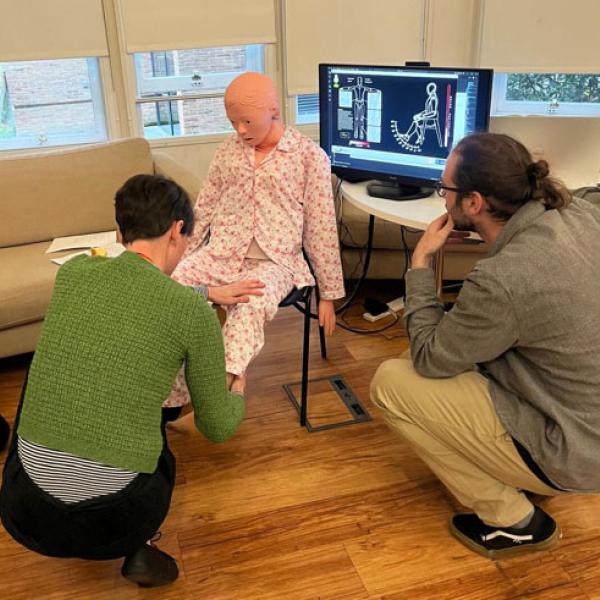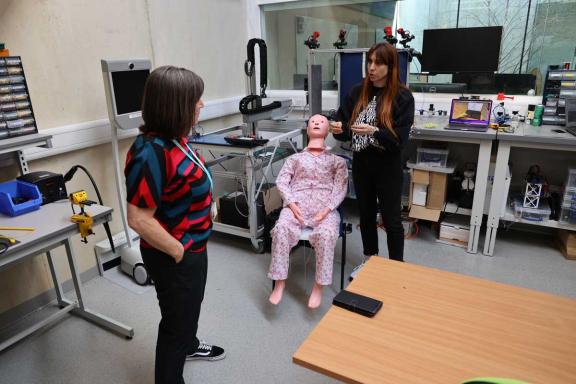Enhancing occupational therapy with robotic technology in Oxfordshire
A pioneering initiative to improve the understanding of touch in occupational therapy through the use of advanced robotic technology.
The challenge
Oxford Robotics Institute (ORI) has been developing various applications for its technology. The focus of its current grant programme is to develop autonomous systems that enhance human capacity by creating robots that are:
- versatile
- efficient
- safe
These collaborative robots will be able to perform a wide range of tasks with minimal human intervention. The focus is on tactile sensing—the power of 'touch'.
ORI were particularly interested in exploring the feasibility of utilising robots with touch sensitivity within adult social care for tasks such as moving and handling.
The solution
We facilitated introductions between ORI and the Oxfordshire County Council adult social care department. Occupational therapists in Oxfordshire identified the challenge of understanding the nuanced impact of touch during physical and seated assessments.
To address this challenge, we formed a collaborative partnership with:
- Oxfordshire County Council occupational therapists
- ORI
- University College London (UCL)
The goal was to enhance skills and improve patient outcomes by researching the importance of touch using innovative robotic technology. ORI developed robots programmed to simulate various physical health profiles and behaviours. These robots were used as training tools for occupational therapists, helping them gain a deeper understanding of how touch affects patients during assessments. The project also explored the concept of 'affective touch' as a method of nonverbal communication to soothe and support patients.

The results
We facilitated a collaboration that:
- brought together world-renowned institutions and experienced care-delivering practitioners
- ensured that the technology was tailored to the needs of the therapists
- delivered true co-production

The ORI robot has touch capabilities and is used to help occupational therapists refine their skills when training.
The project resulted in significant training advancements for occupational therapists. Robots provided a standardised and controlled environment for therapists to practice and refine their skills. This innovative approach led to a better understanding of the impact of touch, ultimately improving the quality of assessments and patient care.